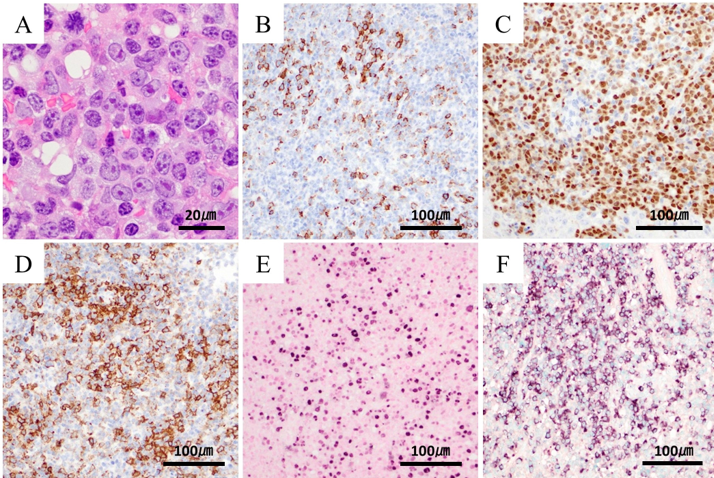Spontaneous Regression of Plasmablastic Lymphoma Associated With Methotrexate After Withdrawal
DOI:
https://doi.org/10.14740/jh1361Keywords:
Plasmablastic lymphoma, Methotrexate, Lymphoproliferative disorderAbstract
Plasmablastic lymphoma (PBL) is a malignant lymphoma with poor prognosis that occurs in immunocompromised and elderly patients. We describe the case of a 75-year-old woman with PBL as a methotrexate-associated lymphoproliferative disorder (MTX-LPD). She presented with multiple oral ulcers and mass-like shadows in the lung fields. Biopsy of the oral ulcer revealed medium to large irregular round monotypic B cells positive for cluster of differentiation (CD)138, CD79a, immunoglobulin λ, and Epstein-Barr virus-encoded small ribonucleic acid in situ hybridization, and PBL was diagnosed. The patient showed negative results for human immunodeficiency virus and had a history of taking MTX for rheumatoid arthritis, suggesting MTX-LPD. Following discontinuation of MTX, the oral ulcers resolved 1 month later without recurrence, and lung lesions decreased in size over time. Because MTX-LPD can take the form of PBL and may resolve with MTX withdrawal alone, therapeutic interventions should be carefully considered. While PBL is typically highly aggressive and requires prompt treatment, MTX-LPD cases can sometimes resolve without further treatment, depending on the clinical course. However, in cases where the disease shows progression or when spontaneous regression does not occur, additional therapeutic interventions may be necessary to manage the disease effectively.

Published
Issue
Section
License
Copyright (c) 2024 The authors

This work is licensed under a Creative Commons Attribution-NonCommercial 4.0 International License.








